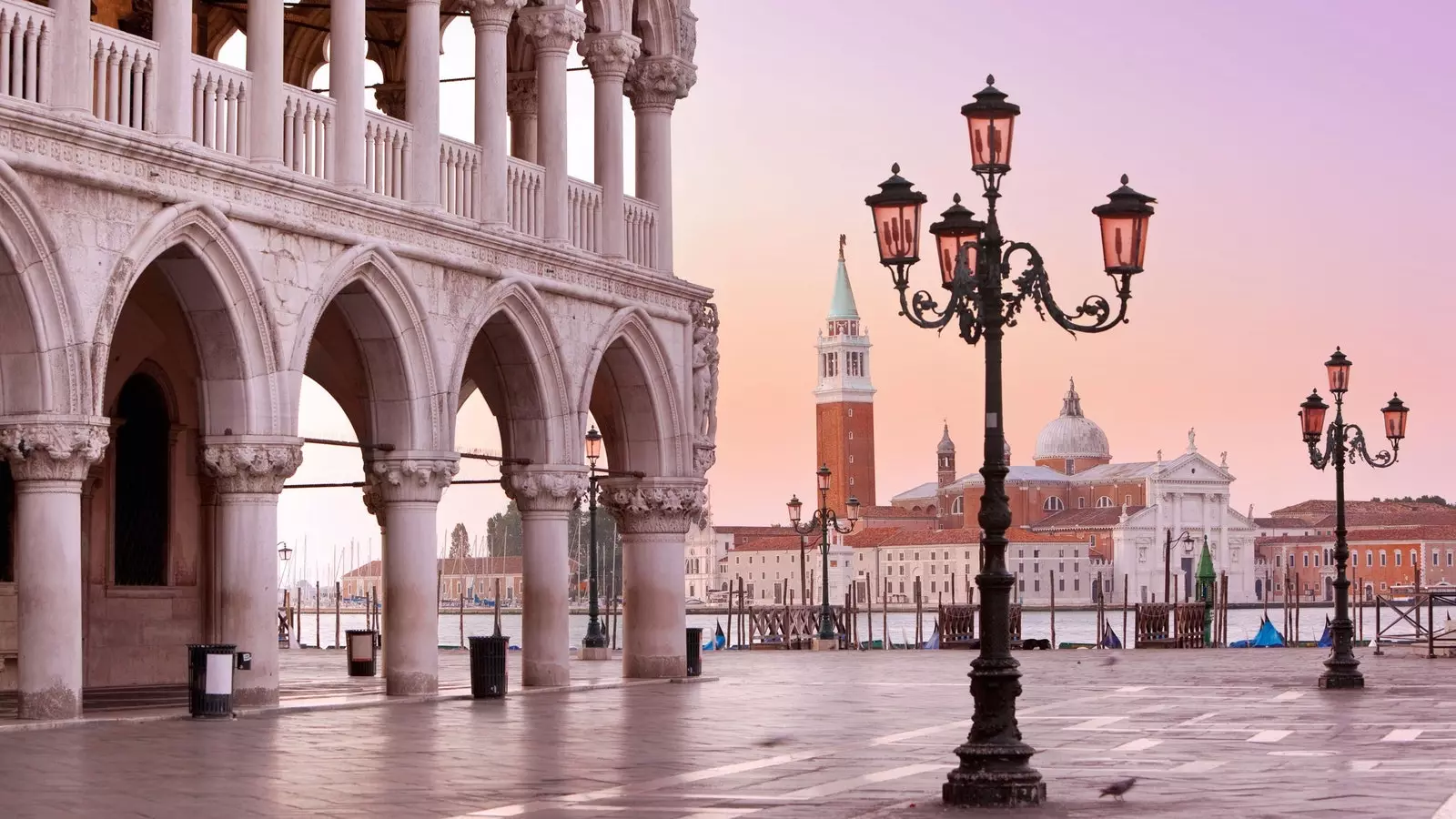
Venice glimpses a new future for tourism after the pandemic
The photos went around the world: schools of fish swimming through the canals of Venice; the square of San Marcos empty; the milky-white Rialto Bridge, free of the huddled crowds. The city that had so publicly battled overtourism in recent years - with some 30 million annual visitors in an urban center of just 50,000 residents - was, it seemed, reclaiming its identity in the pandemic.
“We went from 100 to zero,” says Paola Mar, a former councilor for tourism in Venice, who now works as a councilor for heritage and promotion in the area. But this is good? While outsiders were enthusiastically sharing videos from crowd-free channels, Venetians weren't so happy. For them, those photos meant economic ruin , and something else.
"I suppose those images offer a certain fascination, but I don't think there is beauty in a city that is completely empty," says Giuseppe Calliandro, owner of Antica Sacrestia, a restaurant a five-minute walk from Piazza San Marco. They left me with a deep feeling of sadness and desolation”.
Calliandro was one of the first to reopen his restaurant as soon as restrictions were lifted. "I wanted to give a message of hope: we had been tested, but we were ready to bounce back," he says. " Venice does not only belong to the Venetians ; belongs to all who love her, and welcoming people from every corner of the world comes naturally to us."
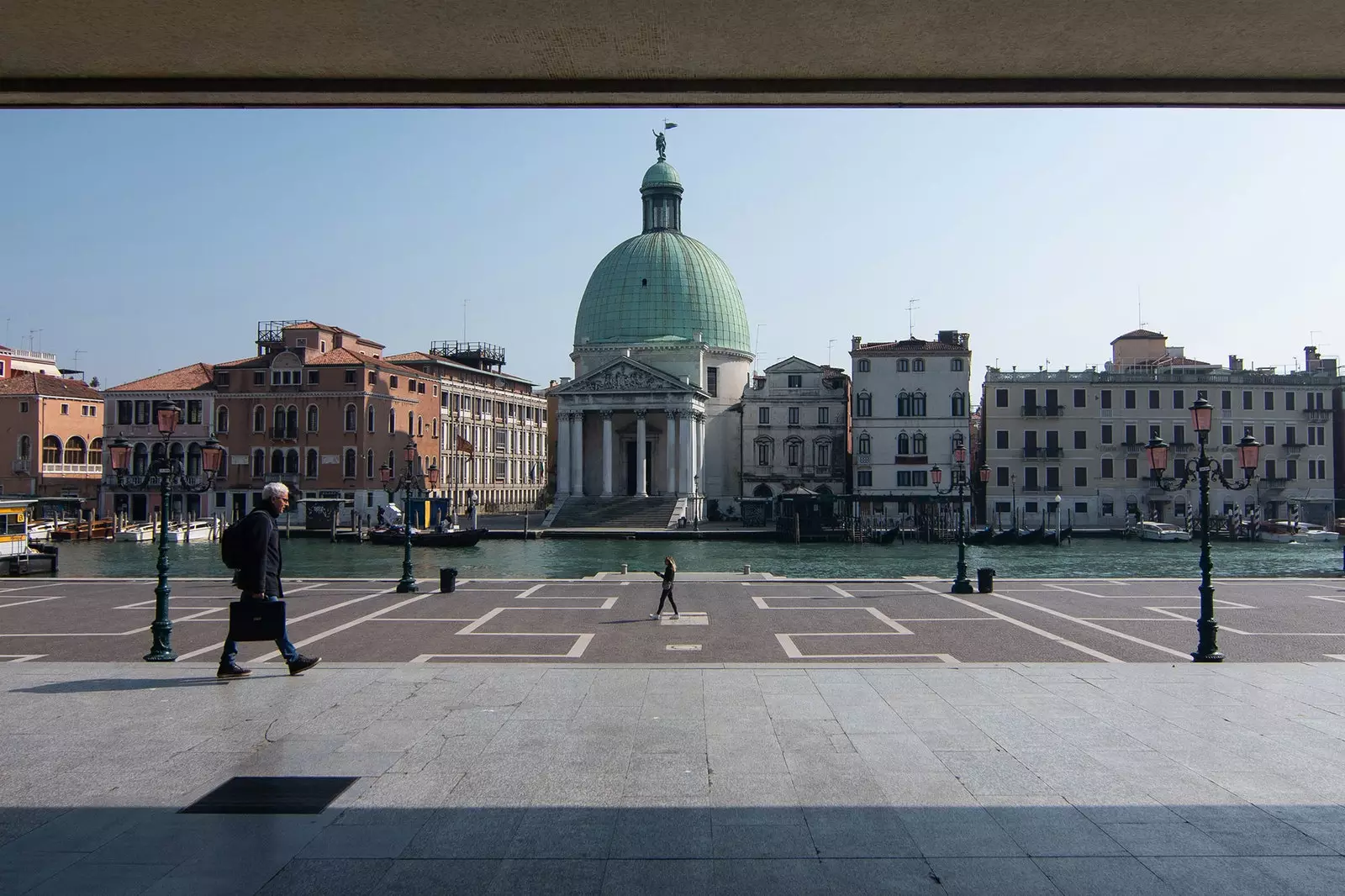
The streets of Venice have been emptier than ever
For tourists who have visited since the European Union began relaxing its border restrictions in June, the advantages are obvious: more space on the streets notoriously narrow, shorter queues for rides, the ability to grab a table at restaurants on the spot rather than with a reservation...
The Venetians, however, have mixed opinions. "Here, everyone needs tourism ”, says Valeria Duflot, co-founder of Venezia Autentica, an online social enterprise that connects tourists with local businesses and artisans. "It has taken over the economy to such an extent that even businesses that don't live off tourists need tourists to survive."
But many in the tourism sector, including Duflot, are wondering if this year's forced hiatus could end up setting Venice on a different path. " We can't go back to the old numbers ", she says. "Tourism may be positive, but here it was extractive; it has literally sucked out most of the population (inner city dwellers have decreased by 70% in the last 70 years).
"We need to change the way we sell Venice and measure success by visitor impact , not just because of the numbers," she continues. "Tourism is predicted not to return to its previous levels until 2023, so we need this time to start over."
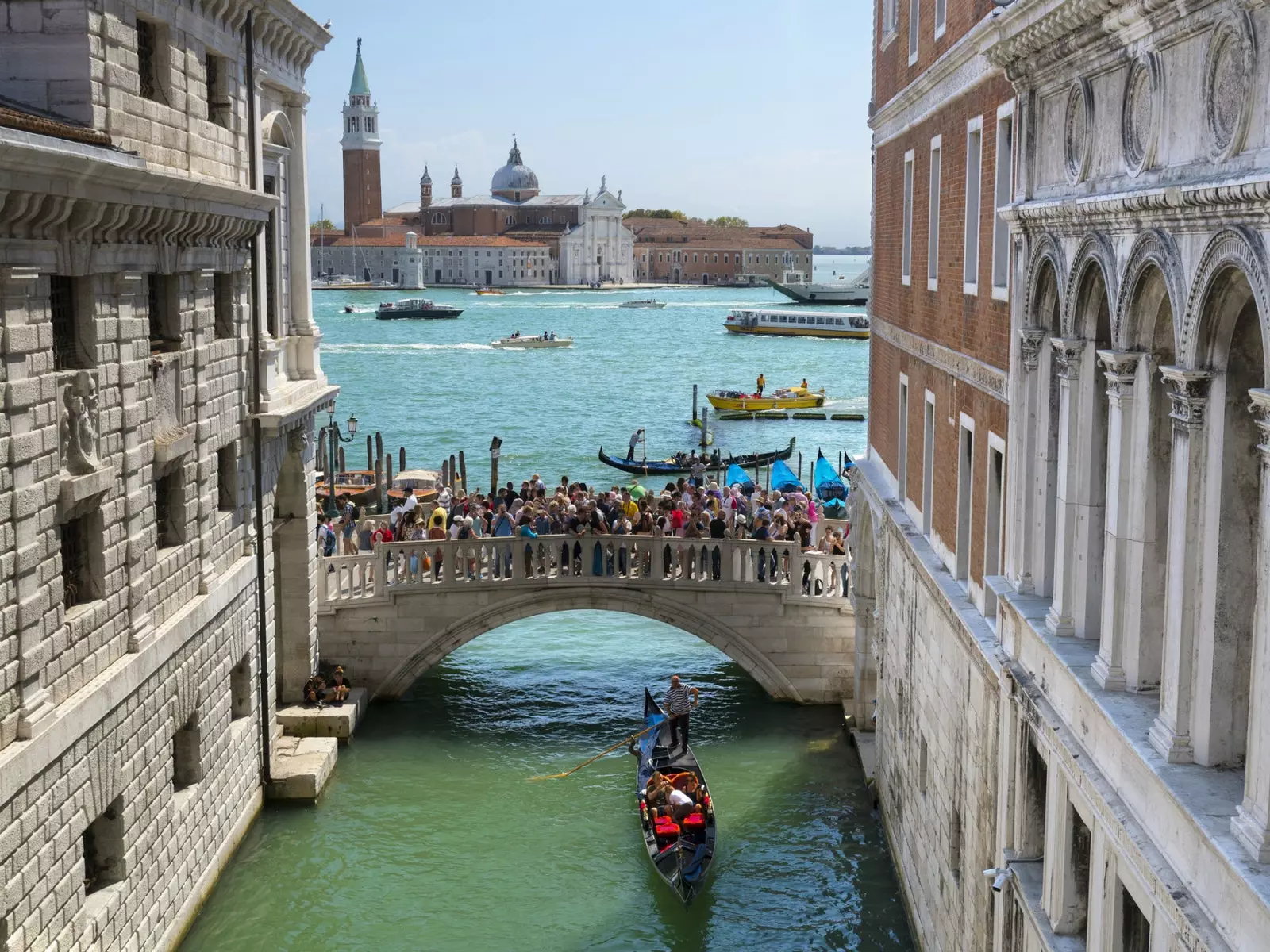
"Here everyone needs tourism"
Her vision is to make travelers explore beyond Piazza San Marco and the Rialto. "It's not that the city can't handle the numbers we've had so far; it's that everyone goes to the same place at the same time " she says. "We need some indoors, some outdoors; some in artisan workshops, others exploring the lagoon".
TOWARDS EXPERIENCE TOURISM
Paola Mar, who has worked to solve Venice's overtourism problem from a global perspective, plans something similar for the future. “It is clear that the challenge will be raise the quality of tourism ", She says.
she hopes that a movement towards experience tourism change the way visitors see and treat the city. If you feel a part of it, you may be less inclined to jump in the canals, walk around in a swimsuit or sit on the bridges having a picnic.
Before the pandemic, 2020 had started as the Italy-China Year of Culture and Tourism , and Mar, along with Ca' Foscari, the local university, had put together an itinerary around Venice's ties to China, ranging from a medieval map of the country in the Museo Correr to Marco Polo's favorite haunts. Now, she tells her, Venice is committed to doing the honors to other nations, hoping to inspire a kind of more thoughtful tourism . “Germany, France, the United Kingdom, the United States… They all made this city great. Do you want to see the footprints left by your people? Will you be able to do it".
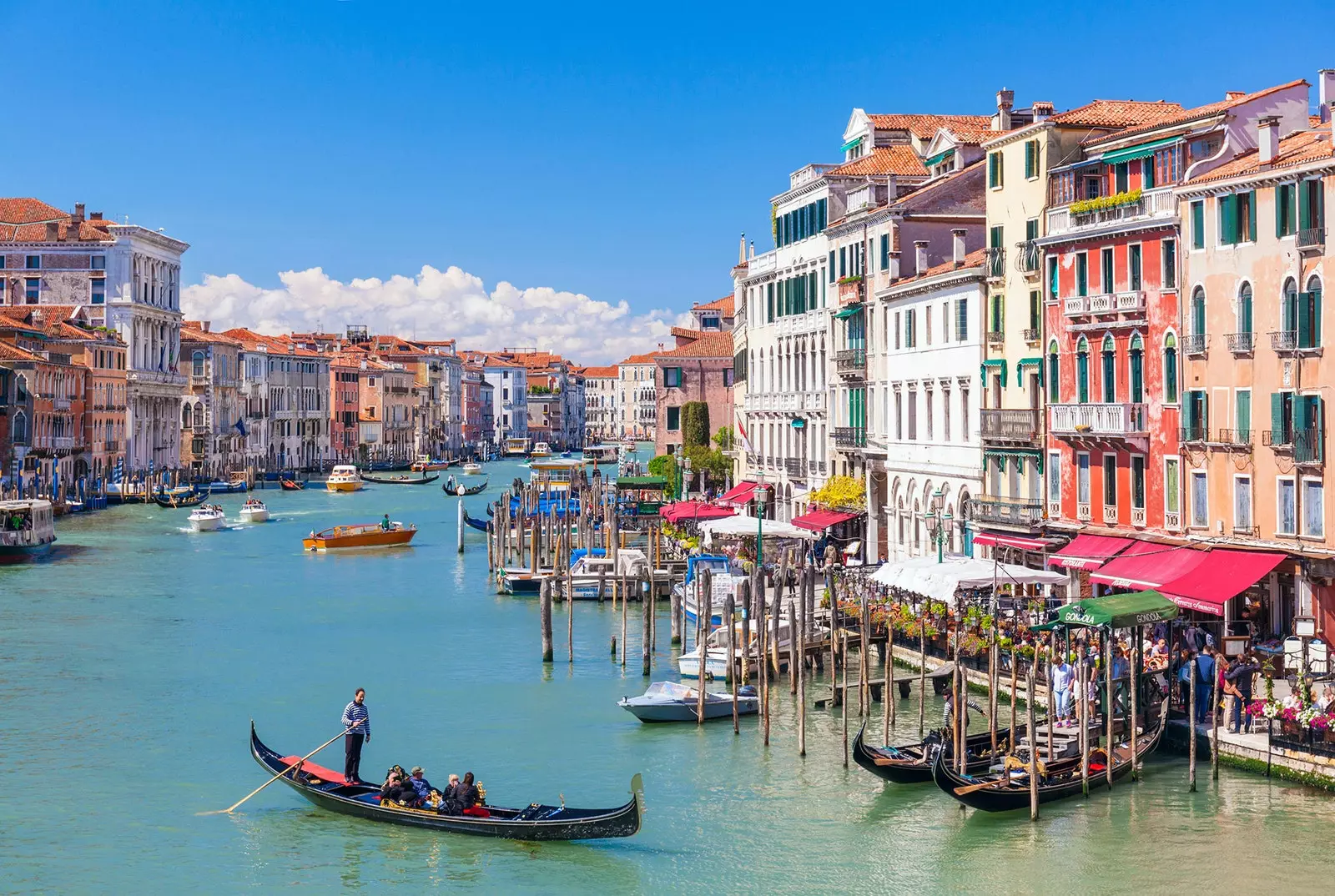
The objective: to raise the quality of tourism
Mar is proud of what the last administration, led by recently re-elected mayor Luigi Brugnaro, has achieved. In the last five years, among other things, she has largely halted the opening of new hotels and takeout restaurants in the historic center of Venice, have deterred Airbnb's booming economy by requiring new owners to install expensive septic tanks and have put in place turnstiles that, when crowded, can divert pedestrians off major thoroughfares. city. This summer, it was also supposed to introduce a contributo di accesso, an access fee of up to ten euros for those who travel without spending the night in the city in high season, although this has now been postponed.
Meanwhile, she wants to help the city's artisans, who keep centuries-old traditions alive. In September, the fourth Venice Glass Week was held, seven days dedicated to the art of glass blowing. Although tourism-focused events do not appear to be directly helping artisans, many of whom are near a tipping point after a disastrous year that saw the incredible floods of 2019 followed by the pandemic, the goal is to focus on them and their work. "They are an invaluable part of Venice's history, identity and community, and are on the verge of extinction," says Duflot.
With fewer visitors to attend to this summer, many Venetians have had time to think of their own solutions. Calliandro, like Mar, wants the city to rediscover its roots, which he says have been “partly lost” in recent years as souvenir shops outshine artisans. For Paolo Olbi, printer and bookbinder, they should focus on high-end crafts Like the marble-lined notebook he once made for a bet that Johnny Depp wanted to buy (Olbi refused, but later gave it to Michael Bloomberg). As mass tourism drags prices down across the board, only by elevating artisans will their traditions survive, he says.
HOUSING, THE MOST URGENT PROBLEM
Claudio Scarpa, director of the hotel association, Associazione Veneziana Albergatori, believes that the city should discourage the "unsustainable" number of travelers who do not spend the night there, assigning different arrival points depending on whether people will spend the night or not . In his vision, those with hotel reservations would use Piazzale Roma, the current access point from the mainland; those without it would be diverted to less accessible areas, such as Fondamente Nove or Zattere, on the outskirts of the city center. He would also like to see more restrictions on Airbnbs, which have ballooned from 3,500 to more than 7,000 in the past five years, artificially driving up rental prices for locals.
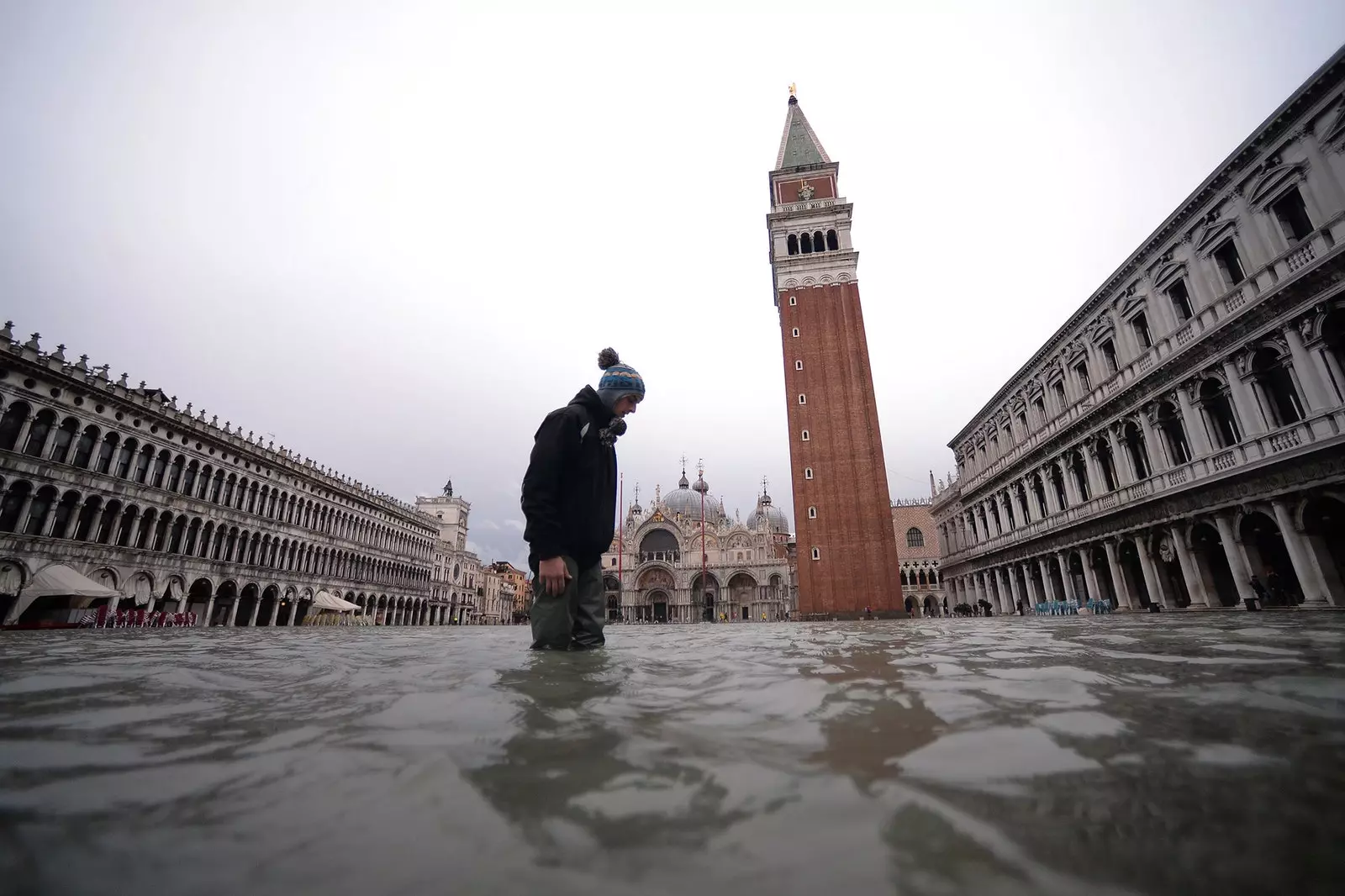
The 2019 floods were a severe blow to Venice
Housing is the most urgent problem to solve, according to Fabio Carrera, director of the Venice Project Center that has been monitoring tourism in the city for 30 years. “ The real problem is depopulation ", He says. “It's connected to tourism, in the sense that there are essentially no jobs outside of tourism, so people leave; and with the wages from tourism, nobody can afford to live in Venice”.
Your solution? The creation of one startup incubator on the island of Giudecca. "The goal is to create good paying jobs in technology so they can afford to live here and have more than ten people per company." For him, COVID-19 is an opportunity: the pandemic has caused countless tourism-oriented businesses to close, finally making room for new ideas to emerge.
AND WHAT ABOUT CRUISES?
The elephant in the room when talking about Venice is always the cruise ships. The ships not only dump thousands of visitors into the city in one fell swoop (and occasionally even crash), but their gargantuan presence erodes the lagoon, turning it into a "sea strait" and increasing flooding, according to Stefano Micheletti of the activist group No Grandi Navi.
With no cruises this year, "we saw a reappropriation of the lagoon by nature after only a few weeks," he says. "We should take advantage of the pause to finally expel the boats "But the authorities, who say that some 5,000 jobs in the port depend on the ships and that about 60% of the 1.6 million annual cruise passengers spend the night in the city, simply they want to move the port to Marghera , In the continent. The decision now rests with the national authorities, who are expected to decide soon.
As residents wait, they continue to ponder the future of tourism. “You only have to walk through the city center to see how the Venice brand is sometimes misused to offer something standardized and inauthentic,” says Calliandro, the restaurateur. "Any plan to improve things must start from this principle: Venice is the most beautiful city in the world and it needs quality, now more than ever".
Report originally published in Condé Nast Traveler USA
